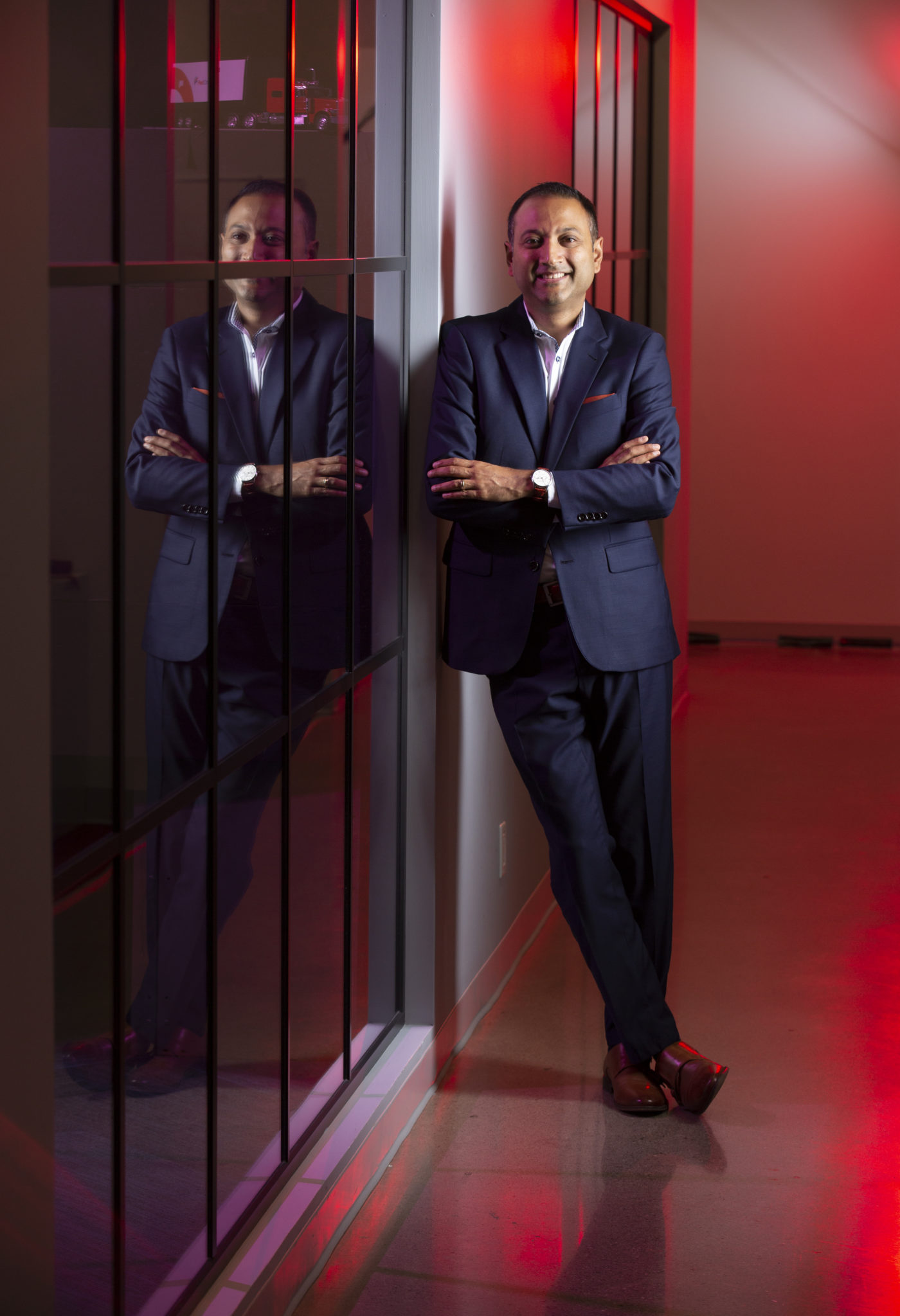The Futurist: Sandeep Kar

The future of trucking is smart, and drivers will be along for more than just a ride. So says Sandeep Kar, Fleet Complete’s chief strategy officer and longtime analyst of the trucking business.
He is watching how technological developments in trucks and telematics are disrupting the freight transport business model. Momentous changes are already happening, he says, and their adoption throughout the industry is only a matter of time.
As a purveyor of telematics services, that technology is naturally on his radar, but there’s much more on offer in the developing ecosystem of smart trucks, communications and software. “The industry is going towards a very interesting kind of truck,” he says. It will be green, safe, and connected.
“When you add it all together, that truck is going to be a smart truck. And the truck will be really smart when that truck’s purpose in life is not only to reduce cost but also to create more income-generating opportunities for businesses.”
Part of this equation is enabling autonomous driving. Kar is keen to point out that this future is not without drivers. It is one where the driver has a new job, and still in the truck’s cab. When not attending to final-mile driving duties, this new-age driver will be seeking more freight, or doing tasks that might previously have been done at HQ, like dispatch or scheduling.
“A truck driver buys the truck, maintains the truck, inspects the truck, delivers the freight, and on delivery signs paperwork, refuels the truck. So the truck driver’s not going away anyway,” Kar says. “In fact, with all this technology, truck drivers can generate more income and be less stressed. Telematics is enabling that.”
Along with autonomous trucks, the technology is there, he says, to also let the truck itself communicate to identify freight that’s nearby and ready for pickup. Using telematics technology in conjunction with this sharing economy model will not only keep trucks full, it will reduce costs and speed things up for shippers. It will reduce empty miles, cut pollution and congestion, and will accelerate the payment cycle for carriers. “It’s win-win-win for everybody,” Kar says.
We are not yet at the point where these uses are common, however. Kar points to the limited penetration of telematics so far – at 25 to 30% of heavy-duty trucks – as a hindrance to the development of this new ecosystem. The value of telematics technology for fuel reduction, safety, regulatory compliance, and uptime maximization is well understood he says. Fleets understand how the technology reduces operating costs. And change is afoot. With more trucks coming equipped with telematics technology direct from the OEM, he expects that the market penetration will climb to close to 80% by 2025.
The brave new world Kar envisions down the road will entail a holistic approach where the truck itself is seen as a solution to the day-to-day business challenges a fleet might face: “How do I make that truck operate at peak condition? How do I deliver power to the truck on demand? How do I reduce the propensity of that truck getting into an accident or an incident? How do I generate freight opportunities for that truck? How do I make sure that the truck driver is rested, is fed, gets health and wellbeing benefits while driving that truck? How do I ensure that the truck is clean and green for the environment?”
This is where new, advanced technologies are going to come together with the benefit of communication and connectivity, he says. Preventive maintenance, autonomous driving, electronic logbooks – all these existing features and more will be brought together through collaboration among OEMs, telematics providers, dealerships, regulators, and the finance industry to create opportunities and savings.
“My role is to rally these disparate parties around that common goal. The end result of those synergies and those partnerships is creation of vehicles and technologies that help dramatically improve the industry, reduce downtime, and reduce the likelihood of incidents that might have impact on human life or on property. Doing so generates more opportunities for people who continue to look at the commercial vehicle as the industry in which they operate.”
Ultimately Kar says, the truck cannot go away. He recounts his daughter asking why he loves trucks so much. “I said, ‘When you think of a truck you don’t think from a heart, you think from your mind because trucks, at the end of the day, move stuff. Today if all the cars in the world disappear, the world will feel the impact, but the impact will be more esoteric in nature. But if you take all the trucks away, everything will stop,'” he says. “That’s how important trucks are to our economies, to our societies, to our existence.”
Have your say
This is a moderated forum. Comments will no longer be published unless they are accompanied by a first and last name and a verifiable email address. (Today's Trucking will not publish or share the email address.) Profane language and content deemed to be libelous, racist, or threatening in nature will not be published under any circumstances.